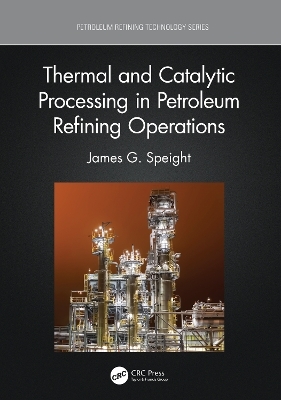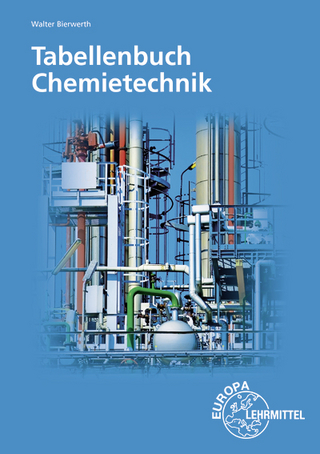
Thermal and Catalytic Processing in Petroleum Refining Operations
CRC Press (Verlag)
978-1-032-02720-3 (ISBN)
Key Features:
Describes feedstock evaluation and the effects of elemental, chemical, and fractional composition.
Details reactor types and bed types.
Explores the process options and parameters involved.
Assesses coke formation and additives.
Considers next generation processes and developments.
Dr. James G. Speight has doctorate degrees in Chemistry, Geological Sciences, and Petroleum Engineering and is the author of more than 95 books in petroleum science, petroleum engineering, and environmental sciences. He has more than fifty years of experience in areas associated with (i) the properties, recovery, and refining of reservoir fluids, conventional petroleum, heavy oil, and tar sand bitumen, (ii) the properties and refining of natural gas, gaseous fuels, (iii) the production and properties of petrochemicals, and (iv) the properties and refining of biomass, biofuels, biogas, and the generation of bioenergy. His work has also focused on safety issues, environmental effects, remediation, and safety issues as well as reactors associated with the production and use of fuels and biofuels. Although he has always worked in private industry which focused on contract-based work, he has served as Visiting Professor in the Department of Chemical and Fuels Engineering at the University of Utah and in the Departments of Chemistry and Chemical and Petroleum Engineering at the University of Wyoming. In addition, he was a Visiting Professor in the College of Science, University of Mosul, Iraq and has also been a Visiting Professor in Chemical Engineering at the following universities: University of Missouri-Columbia, the Technical University of Denmark, and the University of Trinidad and Tobago. Dr. Speight has received the Scientists without Borders Medal of Honor and the Einstein Medal for outstanding contributions and service in the field of Geological Sciences.
Chapter 1: Overview of Refining Processes. Chapter 2: Feedstocks and Feedstock Composition. Chapter 3: Feedstock Evaluation. Chapter 4: Thermal Cracking Processes. Chapter 5: Catalytic Cracking Processes. Chapter 6: Fouling During Thermal and Catalytic Processes. Chapter 7: Importance in the Refinery.
| Erscheinungsdatum | 27.03.2023 |
|---|---|
| Reihe/Serie | Petroleum Refining Technology Series |
| Zusatzinfo | 32 Tables, black and white; 29 Line drawings, black and white; 29 Illustrations, black and white |
| Verlagsort | London |
| Sprache | englisch |
| Maße | 178 x 254 mm |
| Gewicht | 920 g |
| Themenwelt | Naturwissenschaften ► Chemie ► Technische Chemie |
| Naturwissenschaften ► Physik / Astronomie | |
| Technik ► Elektrotechnik / Energietechnik | |
| Technik ► Umwelttechnik / Biotechnologie | |
| ISBN-10 | 1-032-02720-7 / 1032027207 |
| ISBN-13 | 978-1-032-02720-3 / 9781032027203 |
| Zustand | Neuware |
| Informationen gemäß Produktsicherheitsverordnung (GPSR) | |
| Haben Sie eine Frage zum Produkt? |
aus dem Bereich


